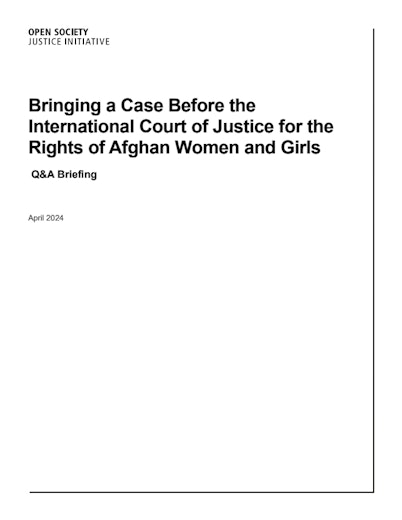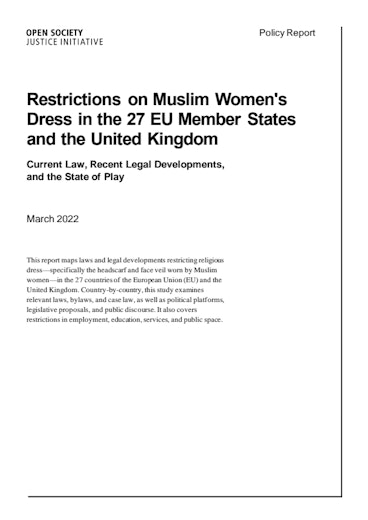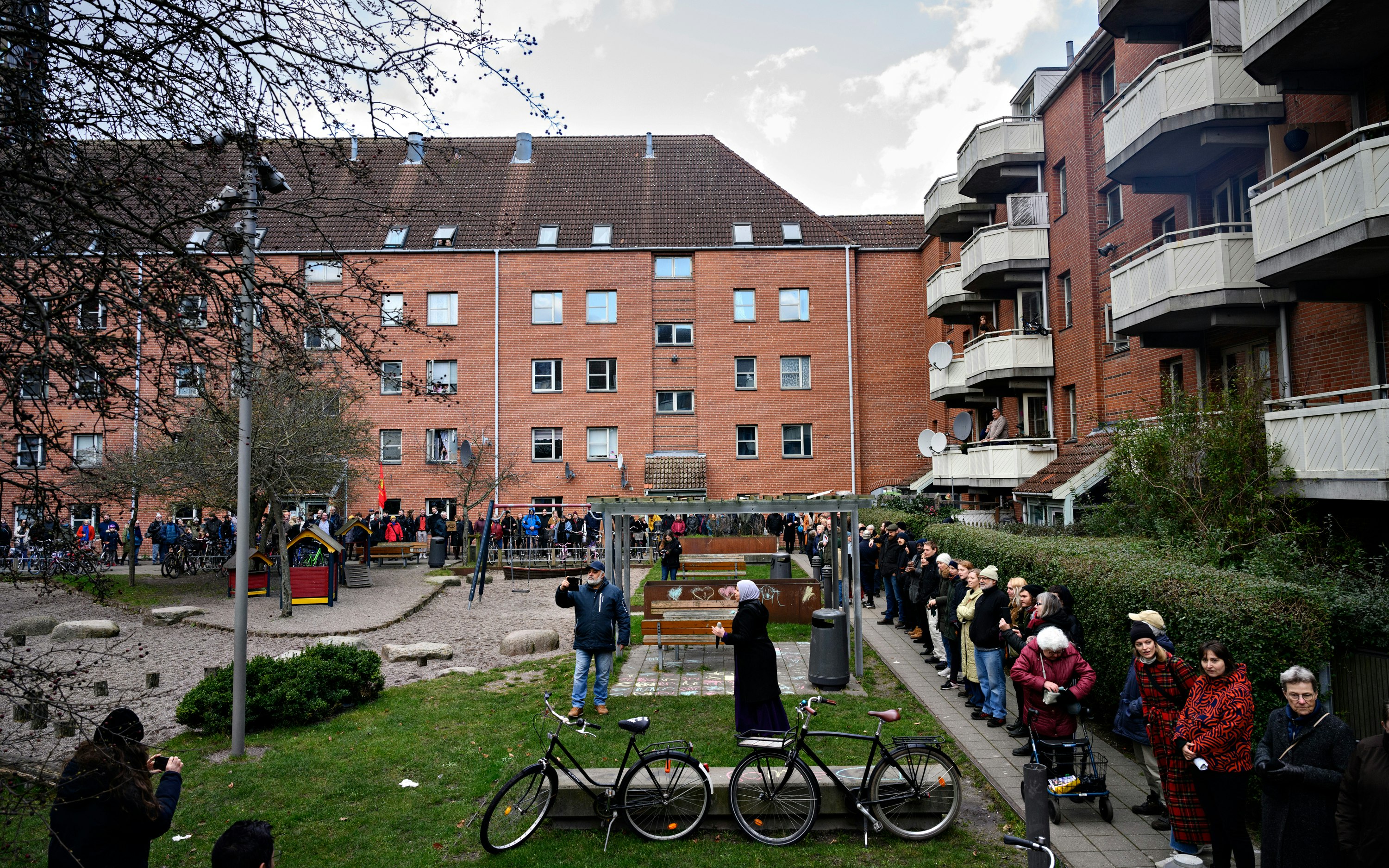People v. Côte d'Ivoire
The Right to Citizenship for Minorities
Côte d'Ivoire introduced new citizenship policies based on the concept of “Ivoirité,” which led to the denial of citizenship for minority groups, up to 30 percent of the country's population. Even though many were born in the country, they are denied the official documents essential for everyday life. The African Commission on Human and Peoples’ found that this treatment failed to respect the right to nationality, which requires the full integration of stateless minorities into Ivoirian society.
Facts
For 33 years after independence from France in 1960, Côte d'Ivoire prospered economically under the leadership of President Felix Houphouët-Boigny. During this period, the country pursued a policy of broad ethnic tolerance and welcomed the plantation-worker immigrants from neighboring countries.
Since the death of Houphouët-Boigny in 1993, when Henri Konan Bédié succeeded him in a contested election, the country has been destabilized by political divisions that have developed along geographic, religious, and ethnic lines. Apparently as a deliberate policy to strengthen his political support among specific communities, Bédié began to question the citizenship, or right to access to citizenship, of individuals from the north of Côte d'Ivoire.
According to the nationality code (Loi 21/12/72), citizens became “foreigners” if they did not have one parent who was born in Côte d'Ivoire (or on the territory that became Côte d'Ivoire after independence). A law passed in 1998 also set out to prohibit “foreigners” from owning land, voting, or running for public office (Loi n°98-750, 23 décembre 1998).
Bédié was replaced by Military General Robert Guéï after a coup in 1999. Guéï embraced Bédié's xenophobic policies and perpetrated large-scale human rights abuses. Security forces committed hundreds of extrajudicial killings aimed at people known as “dioulas”, a term applied to predominantly Muslim groups of various ethnicities in the North of the country. Up until 2005, police still repeatedly discriminated against individuals based solely on the origin of their names, their accent, or their physical appearance and manner of dress indicating Northern origin. Individuals have been dragged out of their homes, stopped randomly in the street, and detained by groups of gendarmes or police. Victims often identified the presence of government officers when serious abuses, including rape, were committed.
The policy of targeting “dioulas” was, and continues to be, systematic. Even with proper proof of citizenship, the government denies “dioulas” benefits and services by creating obstacles to obtaining state-issued documents, such as passports, birth certificates, and identification cards. There have also been numerous reports of identification documents being confiscated, with ethnic and religious discrimination cited in most testimonies as the key motive.
Tensions arising from lack of identification and arbitrary deprivation of citizenship were acknowledged by both the Linas-Marcoussis (2003) and the Ouagadougou (2007) Peace Agreements as the root causes of the conflict in Côte d'Ivoire. While the authorities have since initiated a nationwide birth registration program, known as audiences foraines, the birth certificates in question do not confer citizenship. Moreover, neither peace agreement has dealt with the highly restrictive and problematic application of articles governing who qualifies for Ivorian nationality.
Open Society Justice Initiative Involvement
Arguing that these people have been made stateless, in breach of the African Charter on Human and Peoples' Rights, the Justice Initiative filed an application with the Commission in 2006.
Arguments
Discrimination. The Ivorian government discriminates against “dioulas” in violation of Article 2 of the African Charter and denies “dioulas” equal protection before the law in violation of Article 3 of the Charter.
Statelessness/Legal status/Freedom of movement. Ivorian citizenship laws and policies effectively deny “dioulas” identification cards and passports, violating their right to legal status and infringing their freedom of movement in contravention of Articles 5 and 12 of the African Charter.
Civic rights. Discriminatory laws and policies deprive “dioulas” of enjoyment of their civic rights, such as their right to property and their participation in elected government in violation of Articles 13 and 14 of the African Charter.
Family and development. The Ivoirian authorities' discriminatory laws and policies deny “dioulas” their rights to family life and socio-economic development in contravention of Articles 18 and 22 of the African Charter.
In February 2015 the Commission issued an important decision, significantly advancing jurisprudence on the right to citizenship under the Charter. In the absence of an explicit right to citizenship in the African Charter, the Commission found that violations of the right to nationality fell under Article 5, which protects dignity and the recognition of legal status. In reaching that conclusion, the Commission reviewed the historical context of Côte d’Ivoire before and after independence, the different ethnic groups that populated it, and the pro-migration policies under President Houphouet-Boigny and subsequent policies to curtail such rights. The Commission noted that Côte d’Ivoire’s discriminatory citizenship framework did not reflect the ethnic and cultural diversity that contributed to the formation of the state of Côte d’Ivoire at independence. A nationality law that is applied in a discriminatory way and which fails to appreciate the formation of the country is dangerous: one of the main causes of the civil war was tensions between ethnic groups and the refusal or rescission of citizenship documents.
The Commission found that the different treatment to which “dioulas” are subjected constitutes an affront to their dignity. Relying on decisions from other jurisdictions, the Commission noted that the recognition of legal status is interdependent with the right to dignity, especially so “in the African context, where social recognition and belonging to the community are vital, [and] denial or doubt of nationality can constitute the highest form of violation of dignity.
The Commission also found that Côte d’Ivoire violated Articles 2 and 3 (rights to equality and non-discrimination). Ivorian nationality was denied to certain ethnic groups on the basis of their actual or perceived ethnic origin, their religion and/or their patronym, and the failure of the nationality code to properly define an Ivoirian from a foreigner lead to vagueness which in turn ensured the adoption and application of discriminatory policies against persons of or perceived to be of an ethnic group. As stated by the Commission “… the most dramatic consequences of the vagueness of legislation on nationality is statelessness.”
The Commission also found violation of a series of other rights flowing from these: Article 1 (obligation to implement all necessary measures to give effect to substantial rights under the Charter), Article 12 (freedom of movement), Article 13 (political rights), Article 14 (right to property by failing to implement reforms on rural land ownership), Article 15 (right to work), Article 18 (right to family life) and Article 22 (right to development).
With the most problematic provisions of the nationality code still in force, the Commission made a number of recommendations for the reform of the Ivoirian nationality framework including:
- Amend articles 35 and 65 of its Constitution which violate the right to equality by treating differently persons born in Côte d’Ivoire on the sole basis of the presumed foreign origin of their parents (in the final quarter of 2016, a referendum on the Ivoirian constitution successfully removed these articles).
- Bring the nationality code into conformity with the African Charter and the statelessness conventions.
- Put in place through legislative and administrative means a simplified declaration procedure that will enable the recognition of Ivoirian nationality for the dioulas.
- Improve the birth registration system and ensure that it is administered efficiently and free of discrimination.
- Provide fair and independent courts to hear nationality cases.
- Introduce sanctions for public officers that discriminatorily or without cause deny access to legal identity documents.
Implementation
Since the decision, the Justice Initiative has been collaborating with Ivoirian civil society, the National Commission on Human Rights, UNHCR and the Ivoirian government authorities on how best to implement the recommendations of the African Commission.
Civil Society in Côte d’Ivoire has engaged with the African Commission and the government during sessions of the African Commission on Human and Peoples’ Rights Ordinary Session and at other meetings.
The Justice Initiative has advised on the government’s National Action Plan to Eradicate Statelessness (NAP), which forms part of UNHCR’s global strategy to eradicate statelessness by 2024, and which aims to reform nationality laws to bring them in compliance with the statelessness conventions. The NAP involves a broad and intensive consultation process with the government, affected populations, civil society actors, legal service providers, community-based organizations, and academia. Côte d’Ivoire has finalized its NAP and will present it to Parliament for ratification.
The Justice Initiative is also providing technical assistance to community based organizations involved in providing legal support to stateless minorities and other individuals seeking access to documentation.
The Justice initiative responds to the State’s memorandum, noting with concern the State’s reliance on temporary measures that fail to remove the barriers to access Ivoirian citizenship, but also welcoming the States’ increased collaboration with civil society in the context of the consultations around the National Action Plan to Eradicate Statelessness.
Respondent State’s memorandum regarding measures taken by the Government to implement the decision.
The Justice Initiative files an implementation update pursuant to Rule 112(2) of the Commission’s Rules of Procedure and in response to the Commission’s request.
Decision on the Merits, adopted during the 17 Extraordinary Session of the African Commission on Human and People’s Rights held in Banjul, Gambia.
Government of Côte d’Ivoire submits its response.
The Justice Initiative files its merits submission.
African Commission rules on admissibility of the case at the 15 Extraordinary Session of the African Commission on Human and People’s Rights held in Banjul, Gambia.
Additional arguments on admissibility submitted.
The Justice Initiative files a communication with the African Commission on Human and Peoples' Rights.
Related Cases
Nubian Community in Kenya v. Kenya
Africa's human rights tribunal found that members of Kenya's Nubian community face arbitrary procedures that restrict their access to vital national identity documents.
Children of Nubian Descent in Kenya v. Kenya
The African Committee of Experts on the Rights and Welfare of the Child found that children of Kenya's Nubian minority face discrimination leading to statelessness, violating African human rights standards.
Kuric v. Slovenia
This case concerns citizenship rights and statelessness in Slovenia.
Related Work
Q&A: Bringing a Case Before the International Court of Justice for the Rights of Afghan Women and Girls
This paper considers 21 questions around the feasibility of bringing a complaint at the International Court of Justice against Afghanistan's Taliban for egregious and prevalent violations of women’s and girls’ rights.

Restrictions on Muslim Women's Dress in the 27 EU Member States and the United Kingdom
This policy brief and accompanying fact sheet map EU and UK laws and pending legislation restricting religious dress—specifically the headscarf and face veil worn by Muslim women.

Evidence Suggests Evictions in a Danish Neighborhood were Racially Biased. Now the Case is Before the High Court.
This case may set an important precedent for standards for discrimination in Denmark.
